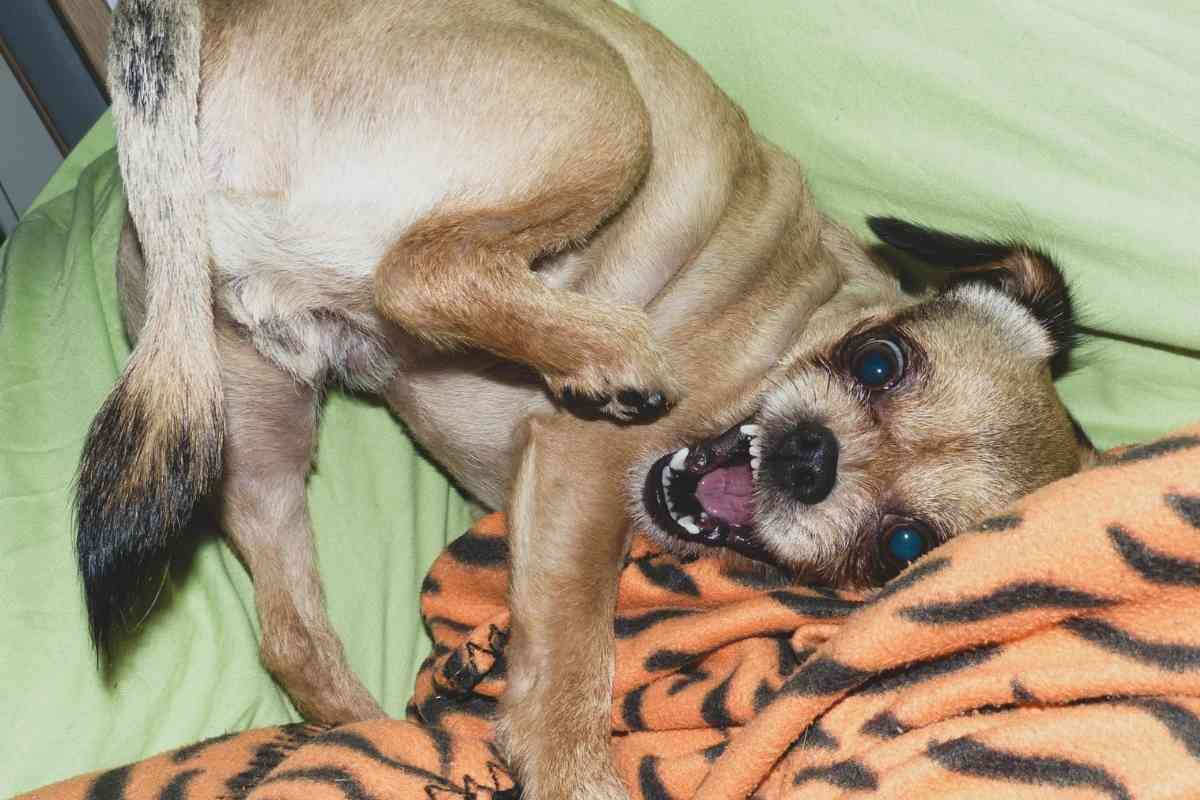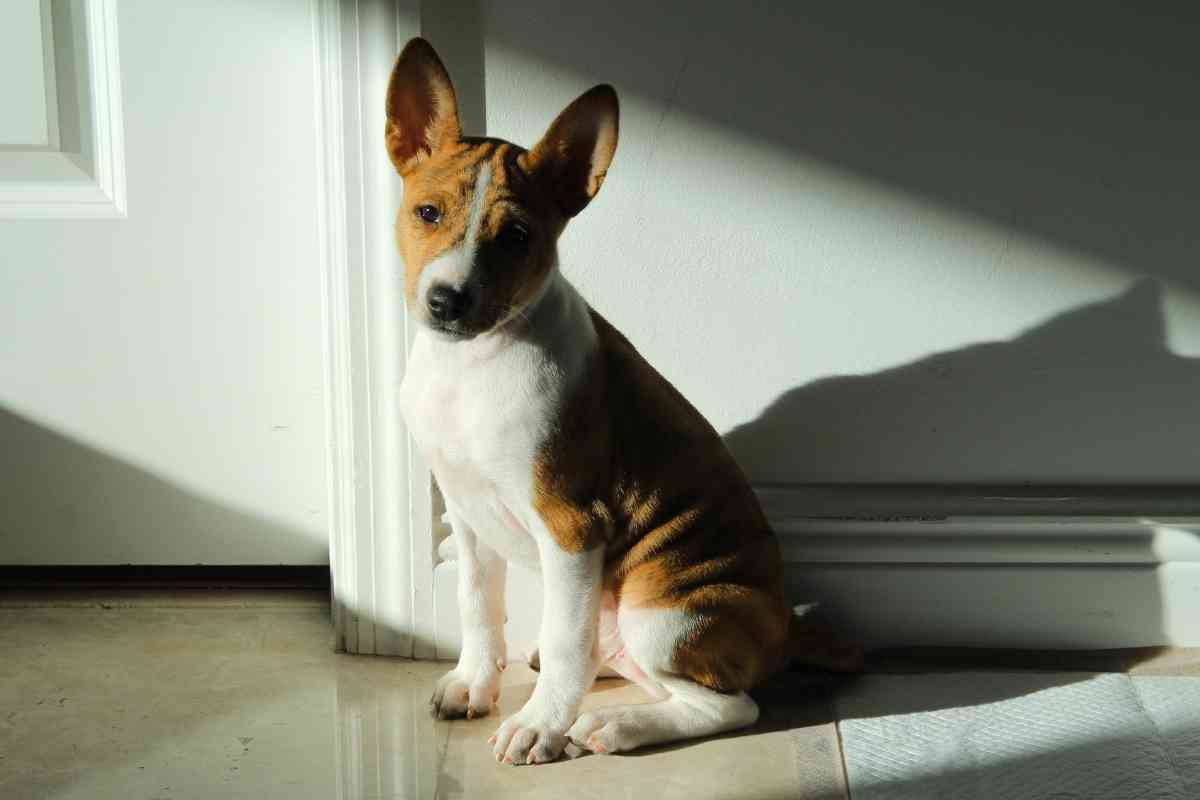5 Reasons Your Puppy Acts Crazy At Night And What You Can Do About It
Dogs are such beautiful creatures, but sometimes, after a hard day, you want to come home and relax without them jumping around crazily. Although dogs are inherently lively and joyful creatures, their enthusiasm and joy may become so excessive that you begin to have concerns. It can be concerning, especially if this behavior occurs at night. So, why does my puppy go crazy at night?

Why does my puppy go crazy at night?
Your puppy may go crazy at night because they are happy, have energy buildup, or want to relieve stress and tension. Dogs occasionally experience these observable, clear-cut energy bursts known as Zoomies. However, they will eventually become worn out from rushing about for a while and settle down.
Zoomies are often in an early stage of development. As your puppy ages, you’ll find them quit being overhyped. Younger puppies are more prone to have zoomies than older puppies. However, older puppies may occasionally continue to have zoomies.
You should note down the frequency and causes of your dog’s zoomies because they could indicate a more serious behavioral issue. Calling your veterinarian is the recommended course of action if you detect any strange behavior.
Why Do Dogs Go Crazy At Night?
Your dog may occasionally become over-excited, leaving you wondering whether they are okay. Well, dogs occasionally go through these observable, unambiguous spurts of energy known as Zoomies.
Scientifically, zoomies are called Frenetic Random Activity Periods (FRAPs).
Zoomies are a common canine behavior that, for the most part, is nothing to be concerned about.
As long as your dog has adequate room to run around without getting hurt or turning the house upside down, you may let them have their moment. Eventually, after a long time of running around, they will get exhausted and calm down.
It’s a good idea to keep track of how often and why your dog gets zoomies, as it may be a sign of a more significant behavioral problem. If you notice any unusual behavior, the best cause of action is to call your vet.
Reasons Why Dog Goes Crazy at Night
While it’s normal to feel upset when you witness your animal friend acting erratically, there is no reason to be alarmed. Several causes of this behavior include:
They Are Happy
Frequently, zoomies are simply an extremely enthusiastic attempt to begin playing and a display of excitement and passion. Your pet may get elated when they see something that makes them happy, such as a cherished person or another dog, and they simply can’t control themselves due to their exhilaration.
They Want To Generate Body Temperature
Dogs gallop around wildly when they get out of the pool or after they shower in an attempt to warm up. After a night wash or swim, they jump around when the environment outside is cold, making blood flow to the muscles.
The heat produced by the muscles also warms the blood passing through them. Their body releases heat by drawing warm blood toward their skin as they move about excitedly.
Excessive energy Buildup
An excessive amount of energy frequently brings on zoomies in dogs. Your dog’s way of discharging this energy may appear very wild.
Zoomies typically occur after your dog has been kept inactive in a crate for a prolonged period. Dogs are quite active and need a lot of playtime, so when they don’t get it, you’ll notice them bouncing around excessively when left outside.
Letting Go of Tension And Stress
When something stressful happens, like visiting the vet, dogs usually run in circles, and they most likely do this to get off some nervous energy.
Relieve Pain
Dog zoomies are generally positive things. But sometimes, it may be brought on by a backache that comes on suddenly and severely or an ear infection. For instance, a flea bite may startle him and make him run around.

Does the Craziness Go Away?
Puppies and younger dogs are the ones that mostly exhibit Zoomies. FRAPs are typically just a development stage. Infact, you’ll notice that once your pup gets older, they’ll stop being over-hyped.
Younger puppies are more likely to have zoomies than older puppies because they have greater energy. However, in some situations, older puppies might still experience zoomies.
How to Deal With the Craziness
Here are some things you can do to stop your dog from acting destructively once they exhibit too exuberant behavior:
Verbal Reprimand
Occasionally, a vocal reprimand can reduce the hype. If you choose this route, ensure you maintain a calm voice. Dogs easily pick up on the energy of their loved ones; therefore, when you scold them, it could cause a disconnection between the two of you.
Give Them A Time-Out
If your dog is too excited to listen and has difficulties settling down, give them a 10 to 15-minute time out in their kennel.
When a puppy is overly excited, an uncrated puppy can cause harm and is more prone to act out. It’s critical to give your dog some strong, secure chew toys to engage in play with during the time out.
Give Them Their Favorite Toy
Giving them a favorite toy will occasionally grab their attention and get them to stop acting up.
How to Prevent Zoomies
You can prevent your pet from experiencing zoomies before it reaches this stage. Zoomies are typically caused by stress or excitement, so it’s best to identify and eliminate the underlying reason if you wish to treat them. Here’s what to do:
Establish A Routine
When raising a puppy, maintaining a regular schedule is essential. It helps young puppies feel comfortable and secure, improves self-esteem, and helps them regulate their bowels, contributing to a generally calmer mood.
The right quantity of playing, exercise, and sleep for your dog can be easily ensured when a routine is followed. Doing this appropriately can lessen some of the stress that can cause a puppy to act out at the end of the day.
Exercise the Dogs
Just like humans, dogs require physical activity to maintain good health. If your puppy has excessive energy, you’ll need to provide them with some ways to get it out. Make sure your dog gets enough exercise to live a healthy life.
Crate Train Your Puppy
Many dog owners are reluctant to crate their pets, although this shouldn’t be the case. Crates help encourage calm behavior by giving your dog a secure, comfortable place to rest or sleep.
Crates meet the innate need that dogs have for compact, enclosed spaces. When used appropriately, crates can reduce separation anxiety, expedite toilet training, and break bad habits like excessive barking and biting.
Mental Exercise
Mental exercise involves more than just moving your body; it stimulates your mind. Frequent doggie training sessions that reward good behavior and positive reinforcement benefit your puppy.
Consider taking your dog to a puppy lesson with a professional dog trainer to add formal training.
Giving your dog a brain-stimulating puzzle or playing simple indoor games with them will also help. Also, ensure you play and interact with them to improve their experience and strengthen your bond.
Hire A Pet Sitter
If your furry buddy is left alone throughout the day, you might consider hiring a pet sitter to play with them or take them for a walk. Little fluffy will likely fall asleep later that day after this helps them pass the time and uses up some of their energy.